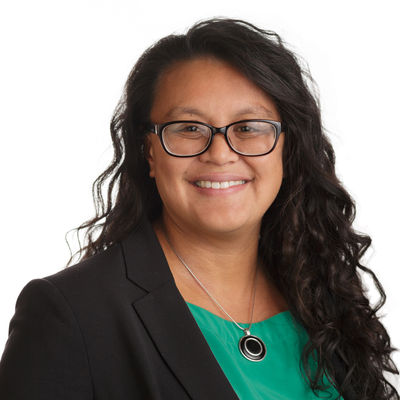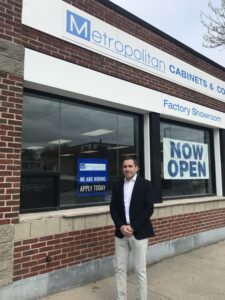Darlene Lombos named chief officer
Of Greater Boston Labor Council
Lombos vows to increase outreach to workers without unions; becomes first woman and woman of color to lead council
BOSTON, MA – Representing nearly 100,000 workers and their families, the Greater Boston Labor Council has a membership that ranks higher than the population of most major cities in the Commonwealth.
With a jurisdiction encompassing 24 cities and towns primarily inside Route 95, the Council is the epicenter of organized labor in the Boston area.
Darlene Lombos was elected unanimously to lead the Council by delegates representing 160 different unions that span every industry and sector, such as construction, hospitality, transportation, health care, education and more.
She brings over 20 years of experience in organizing, most recently serving as the Executive Director of non-profit Community Labor United, a group that specializes in aligning campaigns of organized labor and community groups for mutual aid and to advance the public good.
Lombos, who was born in the US to Filipino immigrant parents, becomes both the first woman and person of color to lead the labor council.
“I am honored to have been elected for this important leadership role in the Labor Movement,” said Lombos. “I am determined to make sure that anyone who wants to be part of a union, can be part of a union. Corporate greed threatens not just our livelihoods and our planet, but even our democratic institutions. Unions have always had a unique role to play in challenging this imbalance of power, in leveling the playing field, and especially in this political moment, leading with our values.”
Lombos will succeed Rich Rogers, who was elected in 2004, and who endorsed Lombos in her election as Executive Secretary-Treasurer of the Council, its highest-ranking position.
Rogers announced his plans to retire late last year after a storied thirty-plus year career in the Labor Movement. Rogers, 64, will be celebrated at a special event in Dorchester on March 5th, for his incredible track record of service to the communities of Greater Boston.
“Darlene Lombos has put in the hard work to gain the respect of labor, community and responsible businesses throughout Boston,” said Boston Mayor Martin J. Walsh.
“I look forward to her leadership and working closely with her to make sure Boston remains a welcoming city for everyone to live, work and thrive.”
Darlene was sworn in at an event last Thursday by Steve Tolman, President of the Massachusetts AFL-CIO. “Darlene Lombos has the commitment, energy and vision that the Labor Movement needs right now,” Tolman said.
“She understands the complex issues facing workers and how these issues affect our communities. Darlene’s extensive organizing experience will foster partnerships that will take organized labor in Greater Boston to the next level. We applaud Rich Rogers for his stewardship of the GBLC for many years, and for his foresight in mentoring the next generation of labor leaders, including Darlene.”
The elevation of Lombos, 45, to the chief official role at the Council comes at a time when public support for unions in America is the highest it has been in nearly fifty years. It also comes at a time when the labor movement is seeing a surge in young members and in its diversity.
According to recent reports, 75% of new union members are under the age of 35. There are also more women and people of color in unions than ever before, with two out of three union members in the United States being either women or people of color.
“I have worked with Darlene for more than a decade. She is a smart, strategic thinker, and she is a fighter. Just like the leaders at Chinese Progressive Association, she understands the power that comes from everyday people coming together in a unified voice, taking collective action and fighting for real change. That means if we want to fix problems like at the T, the best solutions are going to come from riders and drivers – not consultants or private companies wanting to make money off of our tax dollars,” said Karen Chen, Executive Director of the Chinese Progressive Association.
“While the national scene is full of division, we know that the struggle for fairness and justice is not just about one of us, but all of us. We are starved for leaders who can bring us together in more collaborative ways. Darlene is that kind of person who can build bridges across sectors and help us lean into our shared values,” said Reverend Mariama White-Hammond, Pastor of New Roots AME Church in Boston.
Lombos has set forth an initial agenda that includes:
- Increased outreach and resources for workers who are not yet in unions, since interest in joining unions remains strong in almost every sector
- A strong focus on corporate accountability by challenging companies who exploit workers and ensuring they pay their fair share to protect and strengthen public services
- The election of public officials who believe in pay equity, a voice at work, the right to organize, and the value of union apprenticeship programs and career pathways
- The creation of additional, strong leadership programs for women and people of color within organized labor, public office, and in key industries across Greater Boston
Chartered by the National AFL-CIO, the Greater Boston Labor Council’s mission is to improve the lives of working families within the 24 communities in their jurisdiction.
Their goal is to build a movement of unions and workers to advocate for working family issues in city and town halls throughout Greater Boston.
The Greater Boston Labor Council also seeks to reach out to progressive allies within their communities to form coalitions to advance the cause of economic justice. Through their Committee on Political Education (COPE), the Greater Boston Labor Council is actively engaged in the political process. They endorse and campaign for candidates for municipal office who are supportive of the needs of union members and working families.




